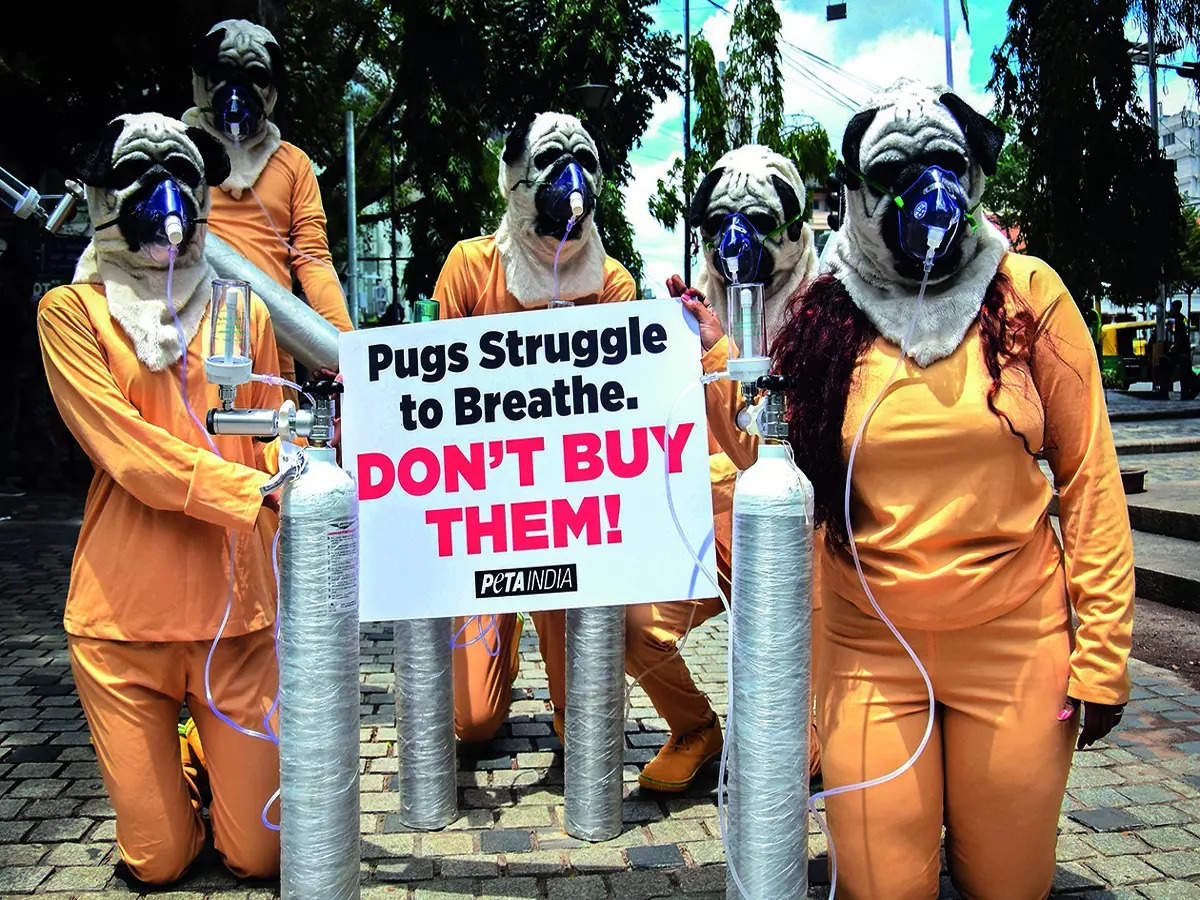Supporters from People for the Ethical Treatment of Animals (PETA) India, clad in pug costumes and equipped with oxygen masks, came together at the
World War Memorial. Their mission was to alert citizens about the plight of
brachycephalic dogs, such as pugs, whose flat faces lead to severe breathing difficulties and often necessitate life-altering surgeries. PETA India emphasised the moral imperative to avoid purchasing these breeds and opt for adoption instead.
Atharva Deshmukh, Campaigns Coordinator for PETA India, said, “Breeders deliberately breed dogs with deformed faces and airways that shorten their lives and cause a multitude of health problems, just to achieve a particular look. We encourage those with the time, patience, love, and resources to welcome a dog into their home to stop buying dogs with debilitating deformities from breeders and pet stores and instead adopt desi dogs, who are known for their loving nature, from an animal shelter.”
According to PETA, pugs, along with other breathing impaired breeds (BIB) like French and English bulldogs, Pekingese, Boston terriers, boxers, Cavalier King Charles spaniels, and shih tzus, are plagued by a distressing and sometimes fatal condition known as brachycephalic syndrome. This syndrome forces them to endure constant panting, snorting, wheezing, and the daily struggle to simply breathe. Even basic activities like chasing a ball, running, playing, and going for a walk become arduous tasks for these animals, depriving them of the joys that make a dog’s life fulfilling.
PETA India had even reached out to Parshottam Rupala, the Minister of Fisheries, Animal Husbandry and Dairying, to amend the Prevention of Cruelty to Animals (Dog Breeding and Marketing) Rules, 2017, with the aim of prohibiting the breeding of such animals.
Other countries like Norway and the Netherlands have taken steps to restrict the breeding of flat-faced dogs, with the Netherlands considering banning the ownership and use of these breeds in advertising.
They also raised awareness about the rampant illegality in most pet shops and breeding operations, which often operate without registration with their respective state animal welfare boards. “These establishments typically deny dogs proper veterinary care, while simultaneously contributing to the growing crisis of animal overpopulation,” he added.








